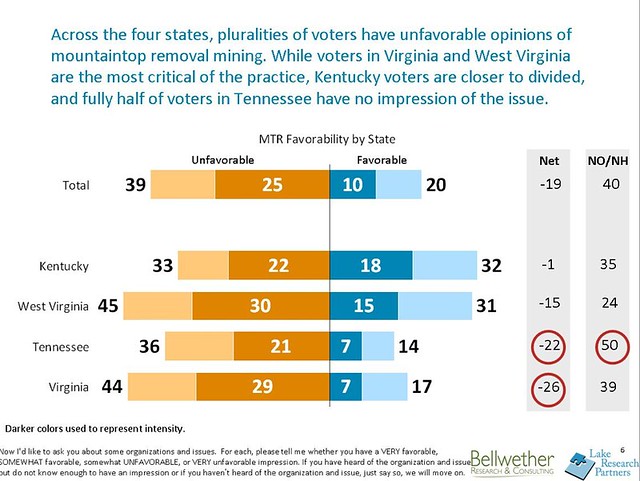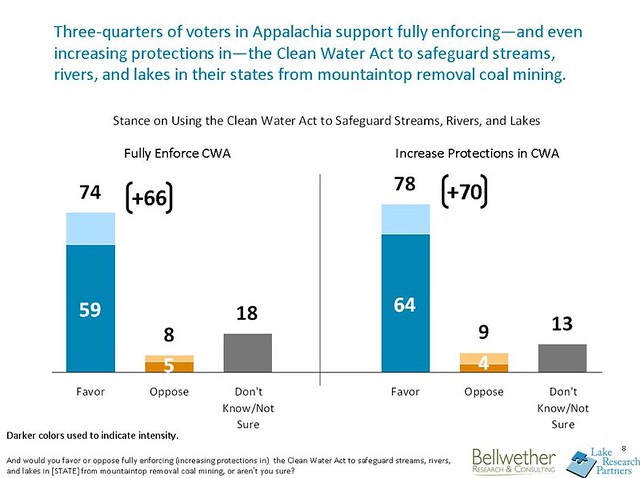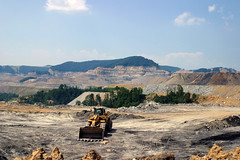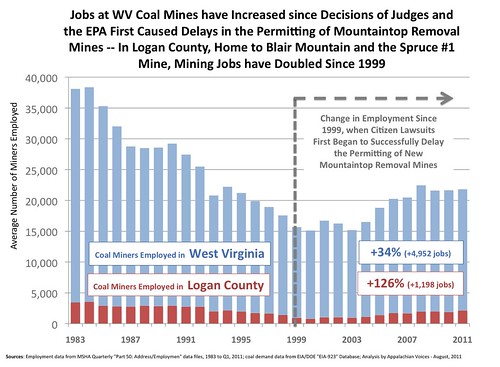The hearing against the Kentucky Energy and Environment Cabinet, and ICG and Frasure Creek coal companies wrapped up last Friday. Appalachian Voices, Kentuckians for the Commonwealth, Kentucky Riverkeeper, and Waterkeeper Alliance intervened in the settlement between the Cabinet and the coal companies, arguing the settlement was not fair, reasonable or in the public interest. Appalachian Voices has identified more than 20,000 Clean Water Act (CWA) violations committed by the two companies between 2008 and 2009. Additional violations have been identified in 2011, but are the subject of a separate Notice of Intent to sue. Under the CWA, the violations could result in fines of more than $740 million dollars. The Cabinet originally fined the two companies a total of $1.25 million, but negotiated a consent judgment of $660,000 — $310,000 for Frasure Creek and $350,000 for ICG. These fines represent less than 1% of the total possible fines.
Wednesday, the first day of the hearing, began with opening statements, in which our attorney, Mary Cromer, argued the Cabinet’s fines were insufficient and did not account for the financial benefit gained by the companies through inaccurate reporting. The types of violations identified by Appalachian Voices included repeating data in reports from different quarters, and exceeding pollution limits. State employees, Jeff Cummins, Assistant Director of the Division of Environmental Protection, and R. Bruce Scott, Commissioner of Environmental Protection, were questioned to determine how violations were identified and counted, as well as how fines were assessed. Cabinet attorneys objected to many of the questions regarding the Cabinet’s deliberative process. Judge Shepherd, a former Cabinet Secretary, rejected most of the objections, stating that an understanding of the process was necessary to determine whether fines were adequate, and would probably help the Cabinet’s case.
The Cabinet employees reported that they did not know the total number of pollution discharges held between the two coal companies. Mark Cleland, Environmental Control Manager, attributed some of the violations to transcription and administrative errors. Recognizing the implications of inaccurate discharge monitoring reports (DMRs), Judge Shepherd later asked Scott, without accurate data, “how will the cabinet ever determine if there is a water pollution violation?”
On Thursday, the opposing counsel requested summary judgment from Judge Shepherd, but the judge declined. Tom Gabbard, manager of the Cabinet’s Compliance and Technical Assistance branch, was called as a witness. Gabbard testified to inspections of three sediment ponds. Gabbard reported high conductivity readings, as well as red-orange precipitate, indicative of acid-mine drainage, extending as far as 300 feet down a stream exiting one of the ponds. While the Cabinet’s settlement does require corrective action plans, Gabbard stated that, besides remedial action, the plans do not require anything further than what is already required under existing law.
Eric Chance, of Appalachian Voices, testified that he calculated $31,000 per month saved by Frasure Creek and $10,000 saved by ICG through the use of non-certified, and therefore less expensive, labs. Patrick Garrity, the state’s Drinking Water Laboratory Certification Officer, testified the previous day to the inadequacies of one of the labs used by the coal companies. He cited a lack of record keeping, failure to use proper quality control procedures, and disorganized equipment in the lab. The opposing counsel challenged Chance’s data interpretation. When asked by Frasure Creek attorney Jack Bender if he had included the instances of repeating data in his graphs, he replied, “It was not our priority to correct your DMRs.”
In the final day of the hearing, Bruce Scott was called as a witness for a second time, this time in defense of the Cabinet. He testified to the Cabinet’s efforts in addressing the violations of ICG and Frasure Creek, but claimed that the suit was interfering in the ability of the Cabinet to pursue other environmental problems within the state. Nevertheless, Scott also admitted that Appalachian Voices identified violations that had not been noticed by the Cabinet. Furthermore, the Cabinet has only investigated and fined the three coal companies original identified by Appalachian Voices as having violated the CWA. The coal companies each called a witness to assert that the problems were merely a result of substandard lab work and that the companies had quit using the offending lab, S & S Monitoring. ICG has recently hired a new company, East Kentucky Water Monitoring, to collect water samples. The company was founded and operated by the same employees who previously worked at S & S Monitoring.
At the end of the hearing, all parties agreed to submit post-trial findings and conclusions within 30 days, in place of oral closing statements. Judge Shepherd strongly urged all parties to attempt to settle through a second round of mediation. Judge Shepherd stated that he foresees “difficult and novel issues that are likely to keep the problem in litigation for a long time.”
Appalachian Voices is willing to consider a second round of mediation, provided the other parties come to the table in good faith. Any settlement reached must assure that these companies stop polluting Kentucky’s waterways. Barring successful mediation, we look forward to continuing with this precedent-setting litigation. Setting new legal precedents in clean water act litigation is something that makes Waterkeepers very happy. Regardless of the future outcome, we have already succeeded in achieving record-setting Clean Water Act fines against coal companies in Kentucky and changing the way they have to do environmental compliance.
Additional coverage of the hearing can be found in the following news articles:
Wall Street Journal
Courier-Journal
The Lexington Herald-Leader
The Independent: article 1, article 2, article 3




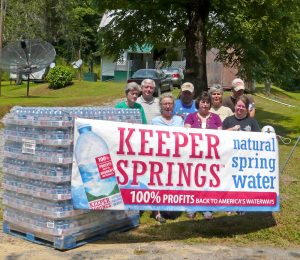
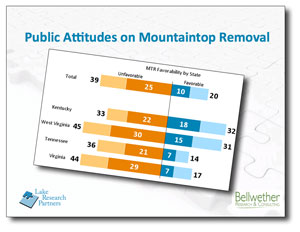
 A
A 